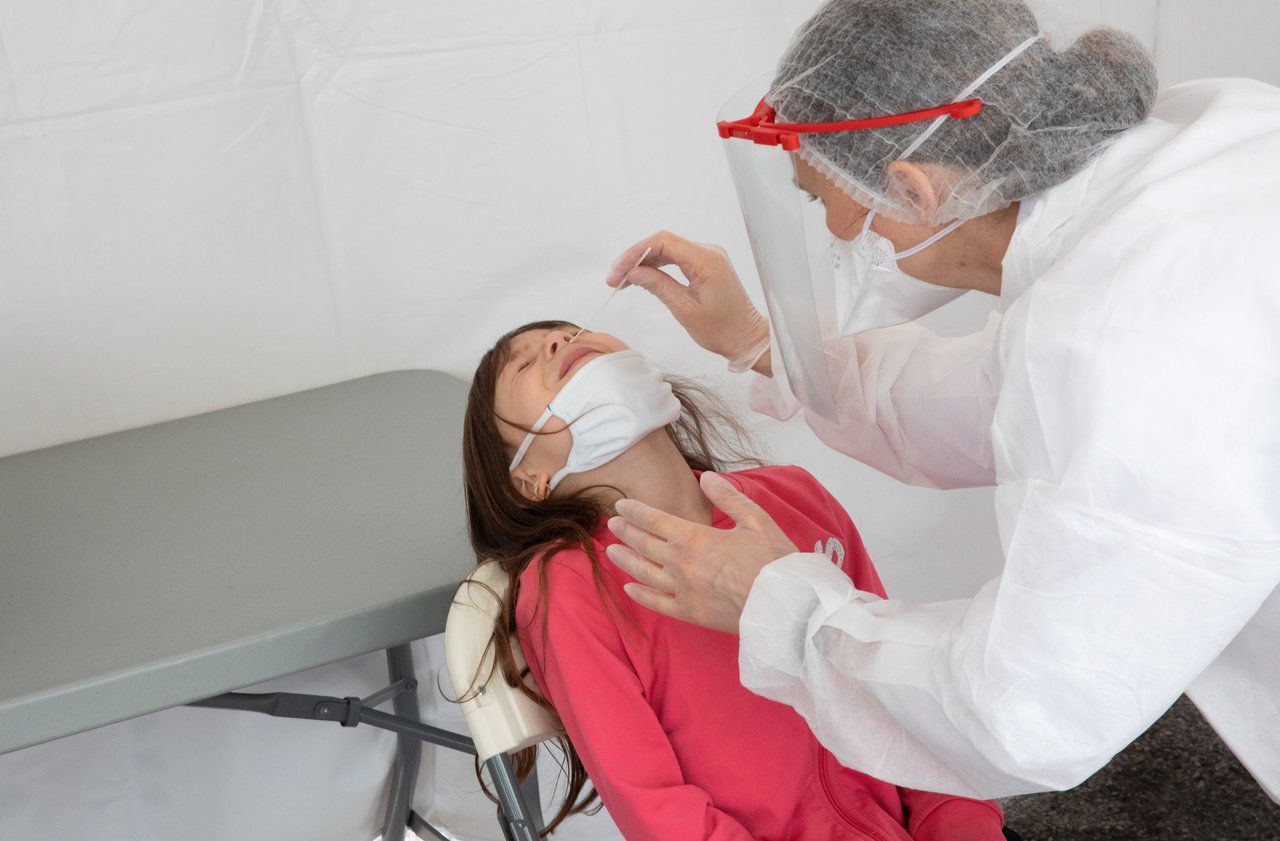We would have asked him the question six months ago, Antoine Flahault would have "intuitively" answered no . But today, this public health specialist is convinced: mass testing, even when the virus is drowsy, is the right strategy to adopt. "Wherever the tests were deployed early and with force, as in Taiwan or Hong Kong, we saw a better controlled wave and a much lower mortality, launches the epidemiologist. To avoid any return of the epidemic, it is necessary to screen frankly. "
In France, even if the number of new daily cases of Covid-19 remains at a low level (541 this Tuesday), the Minister of Health, Olivier Véran makes no secret of it: the risk of a second wave is " not negligible ”, he confided to our colleagues in the world. Health establishments, businesses, integration centers, schools, crèches, families ... the 130 active clusters scattered in almost all regions sound like reminders.
So the government is accelerating the movement. As soon as a territory wipes the first drops of the virus, the instruction is to test there all the time. Including, sometimes, people without symptoms, contrary to its first recommendations. In Normandy, free and non-prescription screening centers have been set up in the parking lot of a shopping center or in a village hall.
In Ile-de-France, the start of an experiment in 32 municipalities was given. Objective: to carry out a PCR - this long cotton swab inserted in the nostrils - to nearly 1.4 million people to identify "sleeping clusters" whose awakening could be painful.
"We still have to convince people to go there!" Notes a doctor. Today, the Directorate General of Health tells us that 250,000 tests (at around 60 euros per unit) are carried out each week in France. " Ah yes ? Weren't we supposed to be 700,000 after the deconfinement? And even more the following month… a bit like in Germany? Are we to understand that the department instructed us to arm ourselves with reagents, in order to achieve this result? If François Blanchecotte goes on with ironic questions, it is because the president of the National Syndicate of Biologists "no longer really understands" the current approach.
"Looking for a needle in a haystack"
“Before, there was a consistent path: we detected a symptomatic case, then the 20 to 25 people around him if it was positive. It made sense, continues François Blanchecotte. Now it's like looking for a needle in a haystack. The future will tell us if doing so, at random, including geographic, has an effect on the circulation of the virus… ”
However, according to Antoine Flahault, these large-scale tests have a positive effect. “It will drain people who would not necessarily have consulted their doctor for a small cough or fatigue. However, there, if it proves positive, self-discipline will be triggered automatically. Everyone will say to themselves: Who the hell have I seen these last few days? and isolate yourself at home ”, is convinced the epidemiologist.
Newsletter - Essential news
Every morning, the news seen by Le ParisienI'm registering
Your email address is collected by Le Parisien to allow you to receive our news and commercial offers. Find out more
Like many doctors and biologists, he now pleads for a technological development of screenings, less restrictive than swabs in the nose. “If we had, for example, reliable and inexpensive saliva tests, we could really do mass testing. "
Epidemic: according to WHO, the worst is yet to come

